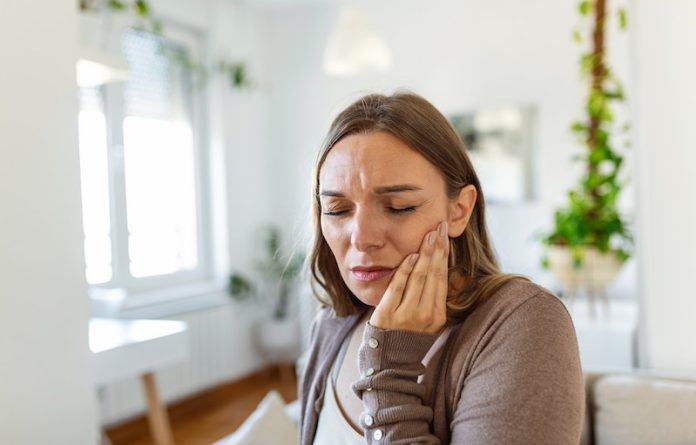
High blood pressure is typically defined by two measurements: systolic blood pressure (the upper number measuring pressure when the heart beats) of 130 mm Hg or higher, and diastolic blood pressure (the lower number indicating pressure between heartbeats) of 80 mm Hg or higher.
In a study from the University at Buffalo, scientists found that some oral bacteria were linked to the development of high blood pressure in older women.
Previous research has found that blood pressure tends to be higher in people with gum disease compared to those without it.
In the study, the team analyzed data for 1,215 older women.
The researchers recorded blood pressure and collected oral plaque from below the gum line, which is where some bacteria keep the gum and tooth structures healthy, and others cause gum disease.
They identified 245 unique strains of bacteria in the plaque samples. Nearly one-third of the women who did not have high blood pressure at the beginning of the study were diagnosed with high blood pressure during the 10 years follow-up period.
The team found 10 bacteria were linked to a 10% to 16% higher risk of developing high blood pressure, and five other kinds of bacteria were linked to a 9% to 18% lower high blood pressure risk.
The researchers say that the findings are particularly relevant for older women since the prevalence of high blood pressure is higher among older women than older men.
More than 70% of American adults ages 65 and older have high blood pressure.
That age category, the fastest growing in the U.S., is projected to reach 95 million by 2060, with women outnumbering men 2 to 1, according to a 2020 U.S. Census report.
If you care about blood pressure, please read studies that black licorice could cause dangerous high blood pressure, and drinking green or black tea could help lower blood pressure
For more information about blood pressure, please see recent studies about how to treat slightly high blood pressure, and results showing this olive oil could reduce blood pressure in healthy people.
The research was published in the Journal of the American Heart Association and conducted by Michael J. LaMonte et al.
Copyright © 2022 Knowridge Science Report. All rights reserved.



